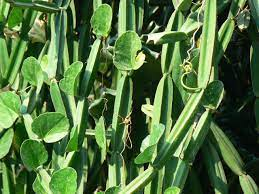VILVAM (Aegle marmelos)
Aegle marmelos,
popularly known as Vilvam or Bael tree, is a sacred and highly revered plant in
various traditional medicine systems, including Ayurveda and Siddha. It is
native to India and is widely cultivated for its medicinal and nutritional
properties.
- Digestive Health: It
is well-known for its digestive benefits. The ripe fruit, leaves, and bark
of the tree are used to alleviate various digestive ailments. It possesses
carminative properties, which help in reducing bloating, flatulence, and
stomach cramps. The pulp of the fruit is rich in dietary fiber, which aids
in promoting regular bowel movements, preventing constipation, and
maintaining a healthy digestive system.
- Gastrointestinal
Disorders: It is commonly used in traditional medicine for treating
gastrointestinal disorders. The fruit is effective in relieving symptoms
of diarrhea, dysentery, and irritable bowel syndrome (IBS). It has
antimicrobial properties, which help in fighting against pathogenic
bacteria responsible for these conditions.
- Respiratory Health: It
has been traditionally used to alleviate respiratory problems. The leaves
and fruit possess expectorant properties, which help in clearing the
respiratory passages and reducing cough. It is beneficial in managing
respiratory conditions like bronchitis, asthma, and common colds.
- Diabetes Management:
It has hypoglycemic properties, making it beneficial for individuals with
diabetes. It helps in regulating blood sugar levels by stimulating the
release of insulin. Regular consumption of Aegle marmelos leaves or fruit
extract may help in managing blood glucose levels. However, it is
important to consult with a healthcare professional for personalized
advice on diabetes management.
- Immune Booster: It
is known for its immune-stimulant properties. It helps in strengthening
the immune system, making the body more resilient to infections and
diseases. The fruit is rich in antioxidants, which help in neutralizing
harmful free radicals and reducing oxidative stress in the body.
- Cardioprotective
Effects: It has cardioprotective properties, contributing to heart health.
It helps in reducing cholesterol levels and preventing the oxidation of
LDL (bad) cholesterol, thus reducing the risk of cardiovascular diseases.
The fruit also contains compounds that help in maintaining healthy blood
pressure levels.
- Anti-inflammatory
and Analgesic Properties: It possesses anti-inflammatory and analgesic
properties, making it beneficial in managing inflammatory conditions and
pain. It is used externally in the form of poultices or pastes to
alleviate joint pain, arthritis, and muscular discomfort.
- Antimicrobial
Activity: It exhibits potent antimicrobial properties, which help in
fighting against various pathogens. It is effective against bacteria,
viruses, and fungi. The leaves and fruit extract are used to treat skin
infections, urinary tract infections, and oral infections.
- Skin Health: It is
beneficial for maintaining healthy skin. The pulp of the fruit is often
used in skincare preparations to treat skin problems like acne, eczema,
and psoriasis. It has antimicrobial and anti-inflammatory properties,
which aid in soothing the skin and promoting healing.
- Nutritional Value: It
is a rich source of essential nutrients. The fruit is high in vitamins,
minerals, and antioxidants, including vitamin C, vitamin A, potassium, and
calcium.
HAPPY
BLOGGING!!!
DEEPIKA
KRISHNAMOORTHY
A
RESEARCH SCHOLAR




Comments
Post a Comment